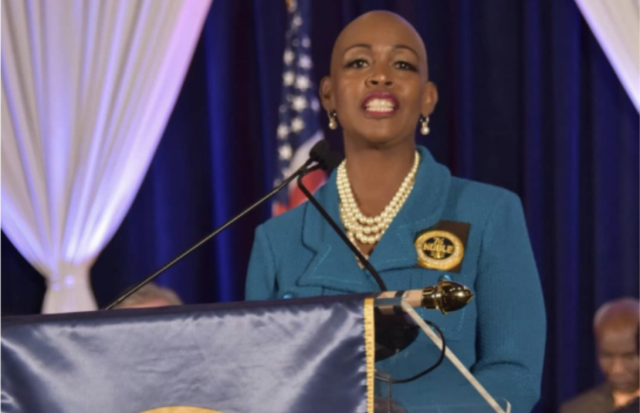
Solomon Crenshaw Jr.
For The Birmingham Times
It’s uncommon to find five female captains serving in one police department, like Birmingham Police Department, said Lynda R. Williams, who knows a thing or two about law enforcement.
Williams is a retired deputy assistant director of the U.S. Secret Service and a criminal justice administration professor at her alma mater Middle Tennessee State University.
“Every time we do something (with) statistical data, we see (female promotions to command positions) more often but it’s still a great challenge,” said Williams. “I think some of it has changed, just the culture that we’re in. It’s not as great an anomaly as it once was but to have five women in command in Birmingham, yeah, that’s still a major event.”
Williams is president of the National Organization of Black Law Enforcement Executives. Founded in 1976 by Black law enforcement executives, NOBLE supports Blacks who are supervisors and mentoring for associate members who aspire to reach that level.
Williams, 58, said women have been historically underrepresented in law enforcement. She cites a myriad of reasons for the thin ranks of women.
“One of the greatest hurdles is a work-life balance — just trying to be a woman or a mother or wife,” she said. “It’s not conducive to that just because of our nurturing nature.”

Shelia Finney, Anja Doyle, Janice Blackwell, Michelle Pruitt and Julie Quigley-Vining are the first five female captains to serve at the same time in the Birmingham Police Department.
Each of the five female captains is a mother. Doyle has two daughters, ages 36 and 28, and lost her 32-year-old son in December 2017 due to complications from diabetes.
Blackwell has one daughter, 38, and Quigley-Vining a son, 14. Finney has one son, 31, but is the guardian of a nephew, 21. Pruitt has a son and a daughter; she declined to give their ages.
That nurturing nature is an asset, Williams said, “but it’s twice as challenging to be that mom, to be that wife, to be that significant other and still have a work-life balance that you’re still taking care of your home life.”
God created men and women differently in thinking process, strategic movements and resolving matters, the criminal justice professor said. “It’s that balance of that male testosterone and the woman’s sense of reasoning that gives a good balance to a situation. I always say that I didn’t sell my femininity to be in law enforcement. I’m very cognizant and proud of who I am, but I accentuate those positive aspects. I don’t try to be a man. I use my mind. Say, ‘Hey, there’s another way that we can do this.’ We just bring a different skill set but those differences need to be embraced not ostracize or misunderstood.”
While there has been a glass ceiling for women in law enforcement sometimes “they build another floor” where women do achieve, Williams said. That’s what makes what’s happened in the Birmingham police force very special.
“It shows that there was a forward-thinking department, that they embrace diversity and they realize that their strength is in their unity,” she said. “It serves as an inspiration and motivation to other women in law enforcement to let them know that with hard work and dedication and just being true to your game and knowing your craft that you too can achieve that.
“Most of the times when women achieve these positions, we are trailblazers,” Williams said. “We have to clear the path so others can come behind us. But many of us who still remain stand on the shoulders of others, be they male or female. What it does is let other women know that you too can do this.”
A career in law enforcement is a calling, the NOBLE president said
“I tell my students that law enforcement isn’t a career you to come into to get rich or get paid,” she said. “That’s not to say (through) maturation and promotion that you don’t have a good salary. But law enforcement is a calling, it’s a passion. It’s a desire to serve. Of course, that’s the innate success of being in law enforcement, that you have to want to care, you have to want to serve and protect.”



